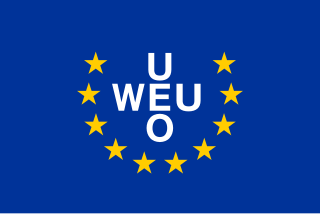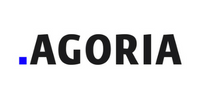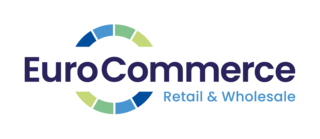History
UEAPME was founded in 1980. The first headquarters of the association were in Munich, Germany. After some years in Germany, the organisation moved its headquarters to Brussels, Belgium, where it was established in 1991 as an international not for profit association under Belgian law (AISBL). The acronym UEAPME was made official in this incorporation and stands for “Union Européenne de l’Artisanat et des Petites et Moyennes Enterprises”, i.e. the European Union of Crafts and Small and Medium-sized Enterprises. In February 2019, the name was changed to SMEunited.
The aims of SMEunited as written in its statutes [1] are as follows:
- Monitoring the EU policy and legislative process and keeping its members informed on all matters of European Union policy of relevance to crafts, trades and SMEs;
- Representing and promoting the interests, needs and opinions of its member organisations to the EU institutions and other international organisations;
- Supporting its members academically, technically and legally on all areas of EU policy;
- Supporting the idea of European integration and contributing to European co-operation.
As of 1998, UEAPME is a European Social Partner alongside BUSINESSEUROPE (previously UNICE), the European Centre of Enterprises with Public Participation and of Enterprises of General Economic Interest (CEEP) and the European Trade Union Confederation (ETUC). In 1996, the first negotiations between UNICE, CEEP and ETUC led to the conclusion of a framework agreement on parental leave. UEAPME challenged the validity of the directive implementing the agreement before the European Court of First Instance, claiming a violation of its own right to negotiate. The complaint was dismissed in June 1998, [2] but the court case created political momentum for the opening of discussions with UNICE, according to the principle of mutual recognition. In November of the same year, the two organisations reached an agreement, further to which UEAPME became a recognised participant in the European social dialogue.

The Western European Union was the international organisation and military alliance that succeeded the Western Union (WU) after the 1954 amendment of the 1948 Treaty of Brussels. The WEU implemented the Modified Brussels Treaty. During the Cold War, the Western Bloc included the WEU member-states, plus the United States and Canada, as part of the North Atlantic Treaty Organization (NATO).

The European Economic and Social Committee (EESC) is a consultative body of the European Union (EU) established in 1958. It is an advisory assembly composed of representatives from employers' associations, workers' unions and civil society organisations. Its seat, which it shares with the Committee of the Regions, is the Jacques Delors building on Belliardstraat / Rue Belliard 99 in Brussels.
Small and medium-sized enterprises (SMEs) or small and medium-sized businesses (SMBs) are businesses whose personnel and revenue numbers fall below certain limits. The abbreviation "SME" is used by international organizations such as the World Bank, the OECD, European Union, the United Nations, and the World Trade Organization (WTO).

The European Trade Union Confederation (ETUC) is the major trade union organisation representing workers at the European level. In its role as a European social partner, the ETUC works both in a consulting role with the European Commission and negotiates agreements and work programmes with European employers. It coordinates the national and sectoral policies of its affiliates on social and economic matters, particularly in the framework of the EU institutional processes, including European economic governance and the EU Semester.

European Union culture policies aim to address and promote the cultural dimension of European integration through relevant legislation and government funding. These policies support the development of cultural activity, education or research conducted by private companies, NGO's and individual initiatives based in the EU working in the fields of cinema and audiovisual, publishing, music and crafts.

Agoria, previously known as Fabrimetal, is a Belgian employers' organization and member of the Federation of Belgian Enterprises.
EUROCADRES is the Council of European Professional and Managerial Staff. It is an organisation associated to the European Trade Union Confederation (ETUC). EUROCADRES is recognised by the European Commission as a European social partner.
EuropaBio is Europe's largest and most influential biotech industry group, whose members include leading large-size healthcare and industrial biotechnology companies. EuropaBio is located in Brussels, Belgium. The organisation was initiated in 1996 to represent the interests of the biotechnology industry at the European level, and therefore influence legislation that serves the interests of biotechnology companies in Europe.
SGI Europe is a European association representing enterprises which carry out services of general interest, whatever their ownership or status.
The history of trade unions in Poland started in 1869.
NORMAPME or European Office of Crafts, Trades and Small and Medium-sized Enterprises for Standardisation was created in 1996 by UEAPME with the support of the European Commission. The German name is: Europäisches Büro des Handwerks und der Klein- und Mittelbetriebe für Normung.
The European Federation of Journalists is the European regional organisation of the International Federation of Journalists. It describes itself as the largest organisation of journalists in Europe, and says it represents about 320,000 journalists in 71 journalists’ organisations across 43 countries. It is headquartered in Brussels.

UNIZO is a Belgian association of entrepreneurs, Small and Medium Sized Enterprises (SME); it is mainly situated in the Flemish region of the Kingdom of Belgium.
RREUSE is an international nonprofit network that links social enterprises active in the environmental field of reuse, repair and recycling. Its main areas of focus are environmental protection, social equity, and economic viability.
The Belgian Chamber of Translators and Interpreters is a non-profit professional association that was founded on April 16, 1955 in Brussels. The Chamber works to advance the profession and the recognition of specific skills and abilities of translators and interpreters in Belgium. It seeks to make players and users of translation and interpretation services more aware of the importance of quality and responsibility.
The European Parliament Intergroup on long term investment and reindustrialisation or #invest 4 future is an intergroup of the European Parliament's legislators which focuses on financing of long-term sustainable investment in the real economy within the European Union. It is aimed to accompany European regulatory work during the period 2014-2019.

EuroCommerce is the principal European organisation representing the retail and wholesale sector. It is led by the Director General.

EuropeanIssuers is an association representing the interests of publicly quoted companies on European stock exchanges. Since 2008, its objective has been to ensure that European Union policy creates an environment in which companies can raise capital through the public markets and deliver growth over the longer term.

The European DIGITAL SME Alliance is a community of small and medium ICT enterprises (SMEs). Its members are national sectorial digital SME associations in 30 countries and regions in the EU and neighboring countries, all together it associates more than 45,000 SMEs. DIGITAL SME was established in 2007 to represent the voice of ICT SMEs and their interests in the European institutions and other international organisations. DIGITAL SME is the first European association of the ICT sector exclusively. The current president is Oliver Grün.
The European Commission Representation in Belgium is part of the Commission's network of representative offices throughout the Member States of the European Union. It is located in Brussels, in the Charlemagne building. The Commission has Representations in the capitals of all EU Member States, as well as Regional Offices in Barcelona, Bonn, Marseille, Milan, Munich and Wroclaw. They work closely with the European Parliament Liaison Offices (EPLO) in Member States.








